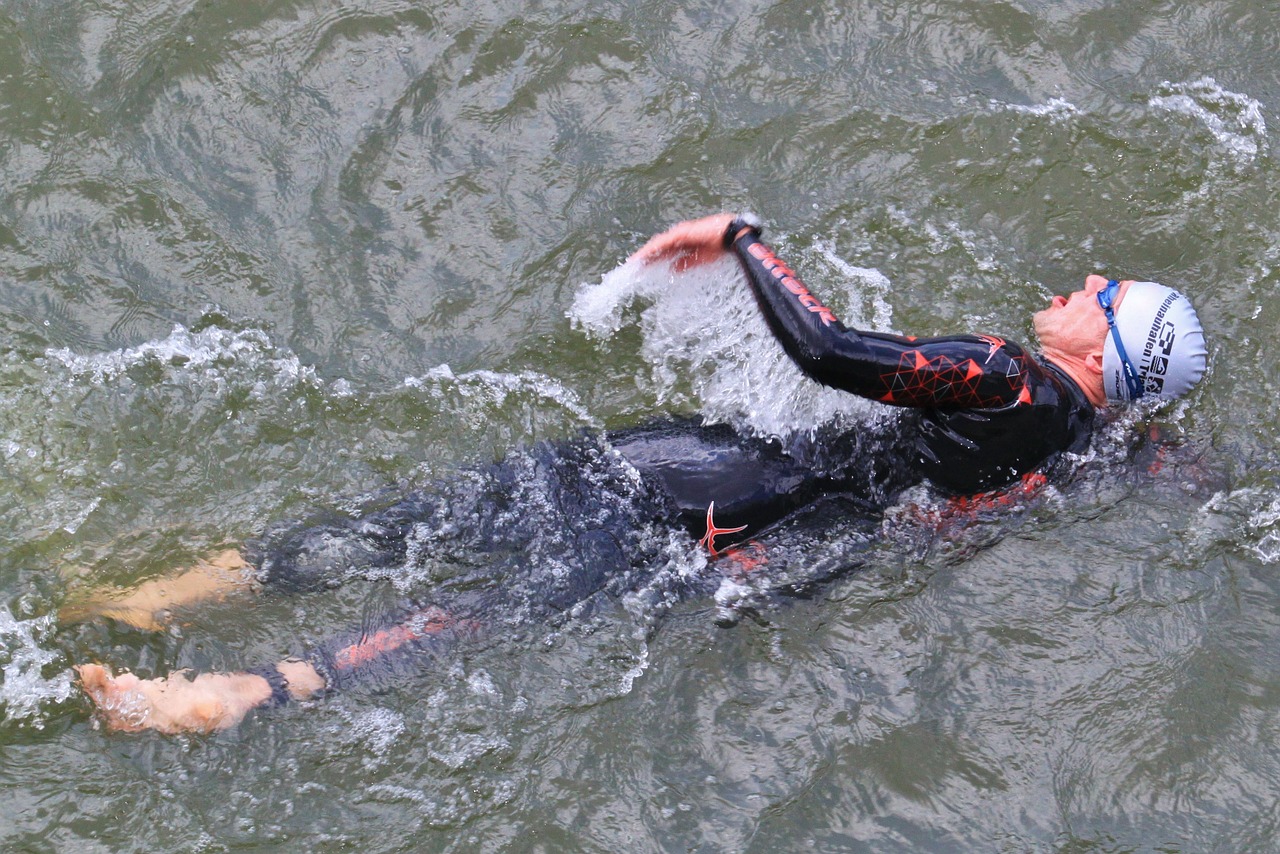Some Tips on Handling Cold Water Swims

Swimming is fun and an amazing workout. With swimming, you can get into shape and stay in shape without putting too much stress or strain on your body.
Lots of people only swim in the warm months and in heated pools. But not everybody is put off from swimming outside when the temperature plunges and many enjoy swimming in cold water, some finding that they just cannot go the entire winter season without swimming outside.
It’s worth giving it a go, although some safety needs to be considered before you jump into cold water.
The main thing you need to consider is that you need to protect your body from the cold so you’re after insulation, particularly in high heat loss areas.
A neoprene cap instead of latex is a good start and if you’ve not got one of those then wear two swimming caps, we can lose up to 40% of our body heat through our heads so it’s an essential place to protect.
Another thing that people may not think of is wearing socks when swimming in the colder water. These socks should also be made of neoprene which is great at insulating to keep more heat in and protecting against cold water, just like the caps.
If it’s really cold, then it’s logical to wear a wetsuit. It is important that you get a full suit, with sleeves because they are going to need to keep all the heat in and sleeveless suits allow a lot of heat to escape.
While it may seem weird for a person who is not used to it, a wetsuit is very good at keeping you, if not warm, a lot warmer.
It might also be worth looking into neoprene hoods that fit over your whole head and also gloves, these working with a suit and socks would be the ultimate protection if you’re planning on being in really cold water.

Earplugs are also useful, having cold water in your ear isn’t a nice feeling and can contribute to your body cooling down fast, so keep the water out and week your temperature up.
Swimming in cold water is something that your body can become acclimatized to, to a certain degree, so if you only ever swim in a heated pool the water in the ocean is going to seem much colder than to someone that’s swimming in it year round and has got used to the lowering temperature.
Additionally, you should be sure to go through a good warm up routine prior to getting into the cold water. You do not want your body to go into shock by entering the freezing cold water without getting the heart pumped up ahead of time. It’s also a good idea to get your face and head in the water while you’re up to your waist, then you won’t struggle in deep water when your head goes under.
Swimming in cold water is something that can be very exhilarating, but it is important to be adequately prepared so as to avoid injury and discomfort.
There’s a number of open water swimming groups and organizations, it would be well worth contacting them, and joining them so they can show you and help keep you safe while starting out.
If you have any comments then please drop us a message on our Outdoor Revival facebook page
If you have a good story to tell or blog let us know about it on our FB page, we’re also happy for article or review submissions; we would love to hear from you.
We live in a beautiful world, get out there and enjoy it.
Outdoor Revival – Reconnecting us all with the Outdoors
